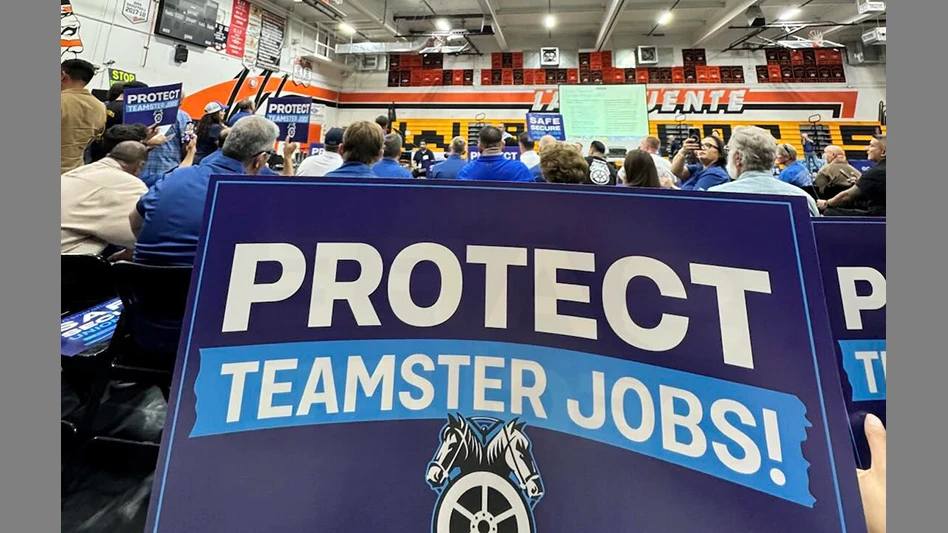
Photo courtesy of Ecobat
Battery recycling company Ecobat has called upon its employees and other members of the Southern California communities near its City of Industry, California, facility to appeal for the renewal of its operating permit.
Ecobat employees, leaders from the Teamsters labor union and other community members provided testimony during a 160-day public comment period that included two public hearings. That process was attached to the renewal of the company’s draft updated operating permit issued by the California Department of Toxic Substances Control (DTSC).
According to Ecobat, the public had the opportunity to review and provide feedback in person, via Zoom and online on the conditions in the draft permit during the comment period, which concluded in late December. A final decision on the draft permit by the DTSC is expected in July 2025.
“Ecobat provides a critical service to Californians as the only in-state recycler of car batteries, annually keeping 10 million spent batteries out of landfills,” says Chris Griswold, a principal officer of Teamsters Local 986, based in nearby Covina, California. “Without Ecobat, spent batteries would end up in landfills or be exported to places like China, India or Mexico, which have significantly less stringent environmental standards.
“With Teamsters support, Ecobat has conducted years of public engagement and outreach in and around the facility in a good faith effort to remain transparent about every aspect of Ecobat’s recycling process.”
Ecobat says its facilities are “at the forefront of environmental and technological advancements, reflecting its commitment to safety, community and the environment.”
“Ecobat sponsors after-school programs and STEM [science, technology, engineering and mathematics]-related activities at the Boys and Girls Club so that the club can provide a safe haven for kids along with opportunities to explore science careers,” says Kurtis Sundblom of The Boys and Girls Club of West San Gabriel Valley and Eastside in Monterey Park, California.
“Ecobat has literally opened its doors to us, providing resources, meeting space and funding; they are a great community partner."
“We were encouraged by the community’s engagement,” says Thys Jordan, vice president of Ecobat Resources California. “Community input and support are vital for the continuing process of modernizing our facility and further improving its safety and environmental controls.
“The renewal of this permit is crucial to that process. The draft permit includes new conditions allowing Ecobat to further improve recycling operations by making them even more protective of human health and the environment.”
Ecobat says its California facility is the only one of its kind in the western United States. It recycles more than 10 million car batteries each year with a 98 percent materials recycling rate, which Ecobat calls “the highest of any industrial recycling process.” The City of Industry facility converts old batteries into lead ingots and alloys.
The company says it has invested more than $50 million in health and safety measures in California.
Latest from Recycling Today
- Lautenbach Recycling names business development manager
- Sebright Products partners with German waste management equipment company
- WasteExpo transitions to biennial format for enhanced experiences
- Study highlights progress, challenges in meeting PCR goals for packaging
- Washington legislature passes EPR bill
- PureCycle makes progress on use of PureFive resin in film trials
- New copper alloy achieves unprecedented high-temperature performance
- Gränges boosts profits and sales volume in Q1 2025





